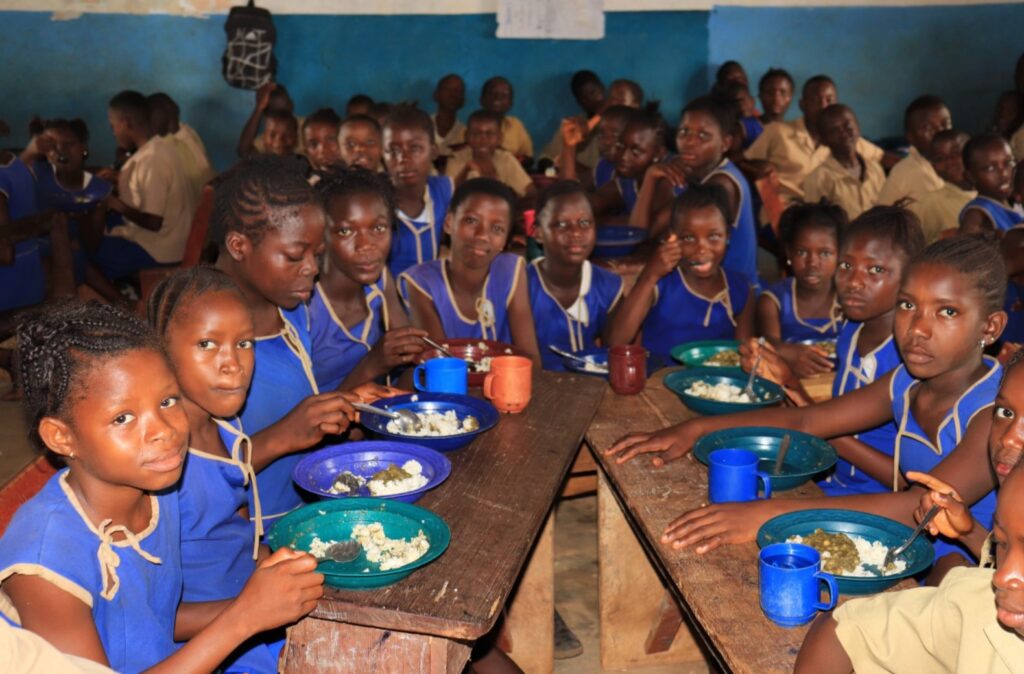

July 19, 2021 –
The Free Quality School Education (FQSE) was introduced in August 2018 by Sierra Leone. The components are akin to the 2014-2018 Sierra Leone Education Sector Plan. The program is designed to control the education system of Sierra Leone, especially at pre-primary, primary, junior, and senior secondary school levels. The program includes:
- Non-payment of school fees by parents and guardians.
- Provision of teaching and learning materials by the Government.
- Recruitment of additional teachers to improve learning outcomes.
- School feeding for pupils in hard-to-reach communities across Sierra Leone.
- Subsidization of fees for all public schools by the Government.
The program has six components which are as follows: access, equity, completion, quality assurance and relevance, integrity, and system strengthening. However, the delivery and implementation have created some administrative challenges.
ADMINISTRATIVE CHALLENGES OF THE PROGRAM
The FQSE started with inadequate financial resources, which have been the major challenge. In 2019, 21% of the national budget was allocated to education (government budget and statement of economic and financial policies for 2019). Despite this high proportion allocated to education, combined with development partners’ support, there is still a huge financial gap between the needs and implementation through the FQSE program.
- The pronouncement of the FQSE has contributed to more pupils going to schools. The increase in school entrants has compounded infrastructure to cope with the current enrollment and attendance. For instance, some schools lack sitting accommodation due to the high enrollment rate.
- The unavailability of accurate, timely, and updated data is also another challenge. Such a challenge is not unique to the program; like in other institutions and programs, the lack of data leads to delays in funding, planning, implementation, monitoring, and evaluation. Despite the Annual School Census carried out by the Ministry of Basic and Secondary School Education (MBSSE) and partners, the MBSSE and the District Education Officers (DEOs) do not have available up to date data on, number of teachers with disaggregated sex, number of trained, qualified, and unqualified teachers, daily teachers and pupils’ attendance, children with learning difficulties.
- Inadequate infrastructure poses a threat in the delivery and implementation. The public pronouncement of the FQSE program in 2018 attracted massive enrollment in schools across all levels. An increase in enrollment and attendance naturally brings about overcrowding. Most schools lack the needed accommodation, facilities, and furniture to match the current registration.
- Inadequately trained teachers are also another challenge. The number of qualified teachers cannot meet the current influx of teacher’s pupil ratio (1:45) (A Comprehensive Situation Analysis of Teachers and the Teaching Profession in Sierra Leone, Final report presented to the Teaching Service Commission, February 2018)
- The lack of a distinct curriculum structure/approach has been another challenge. The implementation design of the FQSE program depicts a different curriculum structure from the existing one, but that does not seem to be the situation. The Free Quality School Education because Government has now taken over the control of the education system, especially at pre-primary, primary, junior, and senior secondary school levels. The FQSE package means that the burden of paying school fees on parents and guardians is no more; the purchase of exercise and core textbooks is also no longer to parents and guardians. The Government gives all public schools subsidies to help them run smoothly. Apart from the shift from the 6344-education system to the 6334 education system, many changes have not taken place curriculum-wise in the current education system. This will undoubtedly create gaps, tensions, and confusion in the implementation process because the new system will be implemented using the old system approach.
SUGGESTED SOLUTIONS
Adequate infrastructural facilities should be provided for schools in need to offer the required accommodation for pupils. This will improve teacher and pupil ratio, learning outcomes, better performance in public examinations because teachers will complete their respective schemes and syllabi in time. Secondly, the Government should design a curriculum and align it to the program’s implementation to ensure its successful delivery and implementation. The design of a specific curriculum will limit some implementation challenges and ineptitude because the road map would have been laid, and it will be relatively easy following the curriculum set. In addition, Government should ensure more trained and qualified teachers are recruited; this will enhance learning outcomes in schools. Lastly, Government should ensure quality data are collected, store and share among stakeholders. This will help to make an informed decision on issues.
Reviewed by Dr. Marie Mbaga
© Africa Innovative Development – Think-Tank
Resources
- Free Quality School Education (FQSE) policy 2018
- Government of Sierra Leone 2018-2020 Education Sector Plan
- (government budget and statement of economic and financial policies for 2019
- The 6334 Education system
- A Comprehensive Situation Analysis of Teachers and the Teaching Profession in Sierra Leone, Final report presented to the Teaching Service Commission, February 2018
